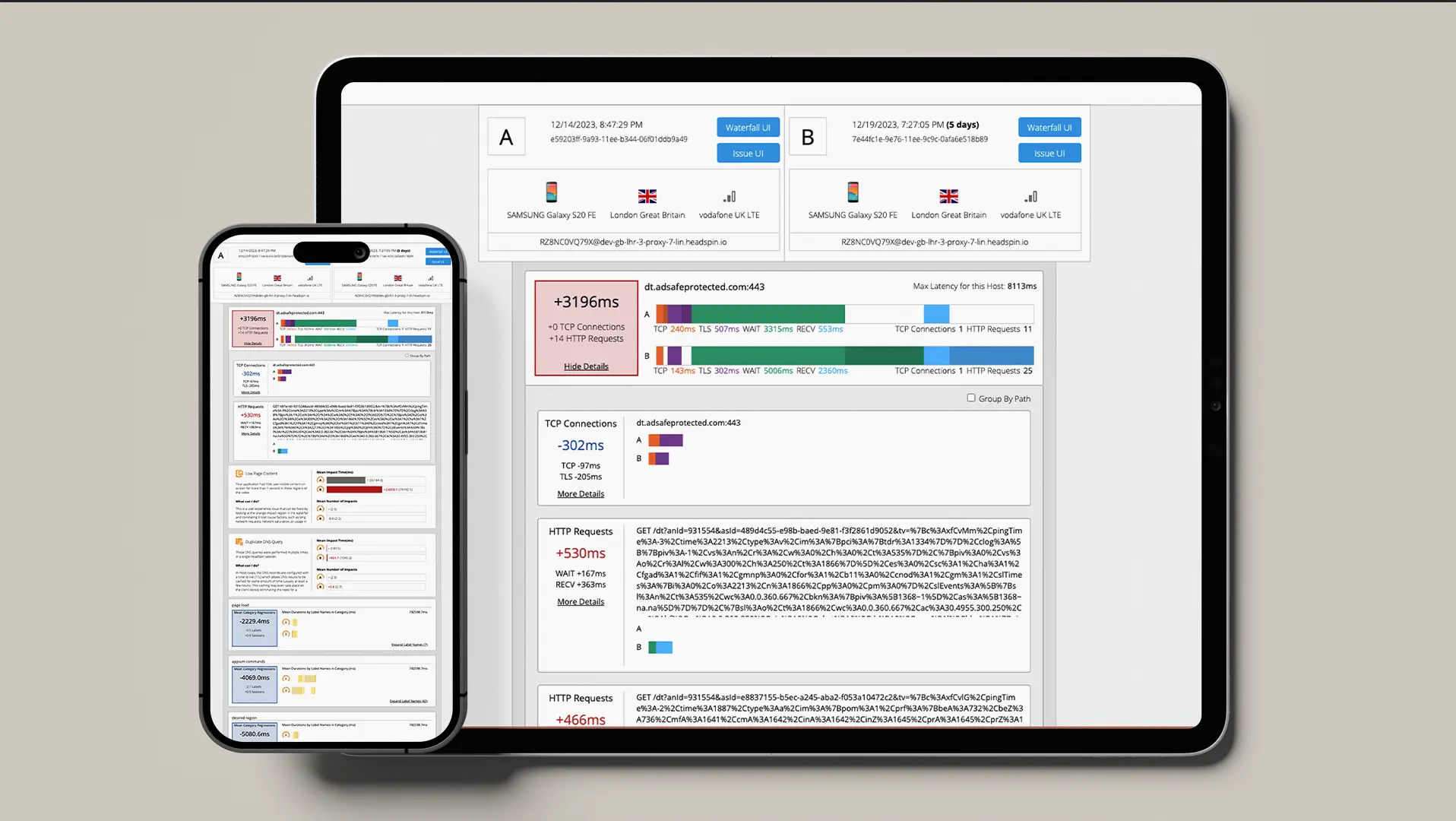AI-Powered Key Takeaways
Most businesses rely on mobile applications to facilitate the fastest and most convenient way of products and service delivery to their customers. Enterprises are making large-scale investments in enabling their flawless customer experience via their business apps. However, delivering high-quality mobile apps for optimum user experience, quick loading, and uninterrupted performance is crucial. No matter how scalable the mobile app or pleasing the user interface is, a slight error can disrupt the entire customer experience. This is where the role of automated mobile testing is essential, as it checks all potential issues before release.
This checklist will provide insights on various Mobile App Testing Scenarios for testers, product managers, DevOps, or QA engineers curious about delivering optimum user experience via mobile apps.
Functional Mobile Testing
QA teams should consider more unique scenarios for mobile apps apart from the standard test scenarios while performing functional testing:
- Ensure that the mobile under test functions in multitask mode when required. For example, while using the mobile app, a user should be able to perform expected actions when he gets a call on the device.
- AUT should not be stopping the activities and not consuming the memory of other applications on the device.
- Page swipe and scroll are functional as expected.
- The automatic startup of the mobile application is working as expected.
- Auto-logout is functional.
- Social networking options on the app, such as login, sharing, posting, and reacting, are working seamlessly.
UI Mobile Testing
UI testing for mobile apps is challenging as testers have to test the placement of app components on a smaller screen. Apart from ensuring the order, layout, and functionality, developers and testers can check a few other mobile app testing scenarios with mobile app test automation:
- Check that the text is fitted on the screen and not cut off.
- Ensure all popups, errors and alert messages are correct.
- Confirm navigation through the menu, carousel, and swipe functions are working as expected.
- Check that the page load duration is not more than five seconds. If the page takes longer to load, it must have a progress bar allowing the user to have an idea about the scenario.
- Review the company logo, image size, and rendering.
- Run a check for grammatical and spelling errors.
- Ensure there is no lag in content loading when the user scrolls up.
- If the screen enables editing without saving, validate displaying a message to save details when the user navigates to another screen.
- Check that data does not get deleted while moving the mobile app to the background while carrying out other functions like filling a form.
Performance Mobile Testing
Mobile app performance is crucial as providing uninterrupted access cannot be achieved if the app performance is not as per standards. With mobile app testing tools, you can run app performance tests as mentioned below:
- Check the CPU consumption while the app is in use.
- Confirm mobile app performance by switching the networks.
- Check how many parallel users and sessions are required to crash the app’s performance threshold.
- Run load testing on individual API calls and review mobile app performance under a specific load.
Compatibility Mobile Testing
- Test for interrupt conditions such as incoming notifications, messages, or calls while the app is in use.
- While performing a test case of an incoming call, ensure that the app should slide into the background and resume like before once the call is disconnected.
- Check seamless functioning of other essential functions like sending/receiving, storing messages, alarms, and more while the app is in use.
Usability Mobile Testing
- Test the accessibility of the buttons, content format, and font size.
- Ensure the mobile app enables uninterrupted navigation without confusing the users.
- Update the client regarding any data download that might not support optimum app performance.
Recoverability Mobile Testing
- Confirm that the mobile app resumes the last operation when subjected to a hard reboot.
- Verify the impact caused due to any R/W function or transactions.
Security Mobile Testing
- Align the user flow and run tests for security vulnerabilities like users’ personal identification data like email, mobile numbers, and passwords.
- Ensure encryption of confidential data from unauthorized access or visibility.
- Check that the data sent to and from the server over the preferred network is encrypted and secured.
Resource usage and Installation Testing
With automated mobile testing, confirm all resources that are required to install the mobile app. Test the installation process to check if the same is quick and user-friendly. Ensure the app installation is smooth with no system crash.
Mobile Data and Battery Testing
Test the mobile app against power consumption and data usage. The app must not result in draining the battery while running in the background.
Time Zone and Localization Testing
Developers and testers must run tests for localization settings if the mobile app supports multiple locals. Functional flows, labels, and other functionalities must work as expected in various languages. The mobile app also has to be tested to check if all features are working uninterruptedly.
Network Connectivity and Career Testing
Automation tools for mobile testing help in checking how seamlessly the mobile app connects with mobile data career and network. The QA team should also test the consistent performance of the app across multiple network connections and speeds from 1G to LTE and WiFi, along with considering sudden changes between network speed and connection fluctuations.
Also check: Choosing a Test Automation Tool - A Complete Guide
Allow/ Restrict Permission Testing
Confirm that the mobile app complies with the user permission guidelines and settings to access features and functionalities of the device like contacts, gallery, and contacts.
Certification Mobile Testing
Ensure app adherence to the platform guidelines of iOS or Android phones during installation.
Single and Multi-Touch Testing
Run tests to review the single and multi-touch features like pinch to shrink or zoom. Build multiple test cases for similar functionalities across different screens.
Features to check for while selecting the right mobile app testing tool
Cross-platform Support
The automated mobile testing tool that you select must support devices across multiple operating supports and platforms.
Remote debugging and device control
Choose automation tools for mobile testing that enable testers to access and debug mobile applications on real devices from their phones or desktops without SDKs or any support from the local team.
Multiple parallel tests
The selected automation tools for mobile testing must enable your team to run tests on as many concurrent Android or iOS devices as they prefer without any slowdown.
Vendor Support
The shortlisted mobile app testing tool must support vendors in all scenarios like installation, availability of devices on the tool, and maintenance.
Scheduled Tests
Choose a mobile app testing tool that enables your team to schedule multiple automated or manual tests as they prefer.
Cross-Browser Support
It is essential to perform mobile testing across browsers such as Internet Explorer, Chrome, Firefox, and Safari to validate app performance. Hence, it is crucial to consider automated mobile testing tools that enable cross browser testing.
Reusability
The mobile app testing tool you select should provide you with the functionality to reuse testing scripts. This saves both time and effort.
Cost
Cost is an essential factor while planning for automation tools for mobile testing. Thus, it should be analyzed if the tool ownership is within the budget range of the business.
Most Effective Mobile Testing Strategies
Testing on Real Device Cloud
Mobile app developers and testers must choose real devices considering the latest market research data on device usage. Devices that users most commonly prefer must be prioritized for testing.
Automation Testing
Testing teams should consider automating regression or functional scenarios to the most feasible extent. It ensures less time consumption and more effective testing. Various automation tools are available for mobile app test automation, such as Appium, Charles Proxy, UI Automator, XCode, Flutter, Android Studio, Espresso Android, WebPage Test, etc.
Conclusion
It is essential to acknowledge that the world has become mobile-first, and there has been an exponential spike in the usage of mobile devices. Therefore, all mobile applications must load faster, be highly scalable, have excellent UI, and deliver optimum usability and performance. It will ultimately help businesses deliver a great user experience. In order to achieve these factors, companies need to leverage end-to-end mobile app test automation.
FAQs
1. What are the different types of mobile app testing?
Types of mobile app testing are functional testing, compatibility testing, interface testing, usability testing, security testing, services testing, installation testing, and performance testing.
2. What are the main advantages of automated mobile app testing?
The key benefits of automated mobile testing are improved bug detection, in-depth insights and analytics, improved accuracy, and faster time-to-market.
3. What are the main approaches to mobile app testing?
The primary methodologies of mobile app testing are manual and automated mobile testing. Increasing complexities of functionalities and features delivered through mobile devices have made it challenging to execute end-to-end testing via the manual approach. Moreover, such tedious processes are time-consuming and resource-intensive. Automated mobile app testing tools accelerate running test scripts and performing holistic testing on multiple test scenarios while enabling QA teams to focus on executing test cases that require no automation, improving SDLC and user experience.


























.png)

























-1280X720-Final-2.jpg)






